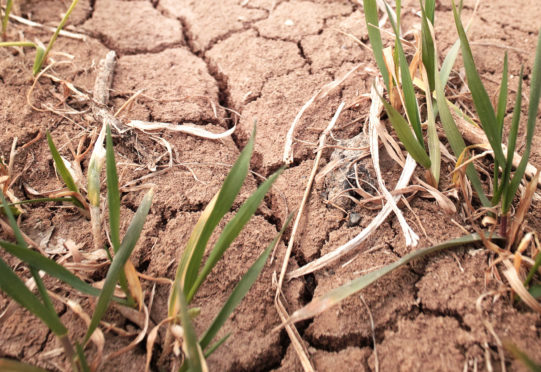The impact on arable growers of recent extremes of weather has prompted an insurance company to introduce a new crop yield “safety net” product.
Rupert Wailes-Fairbairn, rural divisional director for insurers Lycetts, claims farmers need to find a way of compensating and protecting themselves from increasing volatility of the weather.
His company’s Crop Shortfall insurance would help growers manage cereals and oil seed rape shortfall.
“Over the past few decades, we have seen enormous changes to normal weather patterns and as sowing and growing conditions continue to be less than optimal, so too will our output,” he said.
“Last autumn, relentless rain led to arable farmers planting the smallest winter cropping area in decades.
“Consequently, farmers were forced to turn to spring cropping on some soils that are not really suited to spring establishment.
“In turn, spring crops are shallower rooting and less able to tolerate moisture deficits and prolonged hot weather.
“We have the tools to manage price risk. You can sell forward, you can buy an option, or take cover on the futures, but to date, we have never been able to cover the shortfall in output that we are going to produce.”
The Crop Shortfall product protects up to a quarter of the policy holder’s cereals and oil seeds output. Pay-outs are triggered if there is more than a 10% difference between Defra’s regional yield data for the year, relative to the eight-year regional average.
Individual crops such as winter oilseed rape, winter barley, winter wheat or spring barley can be covered or alternatively a farm’s total crop output.
Cover for the following year’s harvest would have to be taken out for winter oil seed rape by the end of August, winter barley by the end of September, winter wheat by the end of October and spring barley by the end of February.
Mr Wailes-Fairbairn, who will be speaking at the online Cereals LIVE 2020’s budgeting and risk management webinar, added the product would also provide cover against new diseases, such as the cabbage stem flea beetle.
The webinar will take place on June 11 at 9.15am.
nnicolson@thecourier.co.uk










